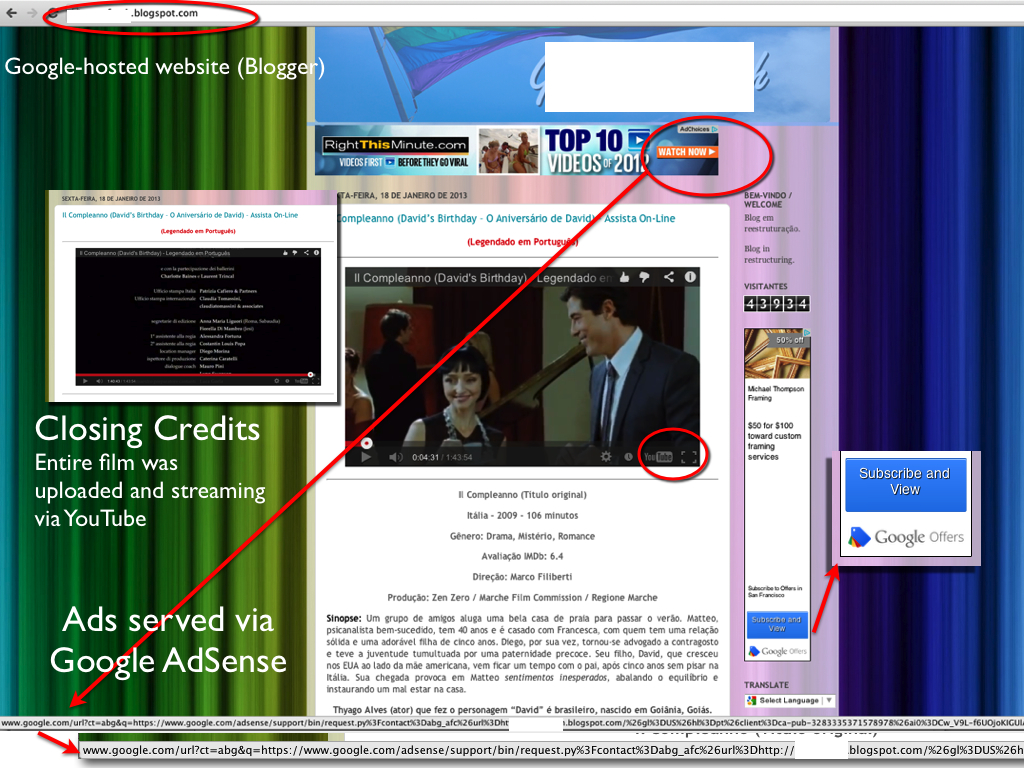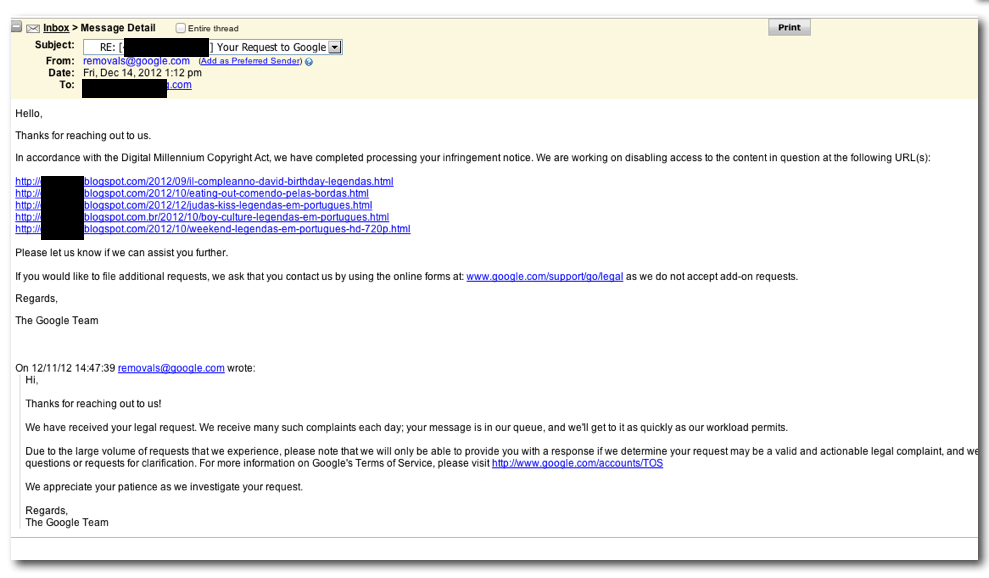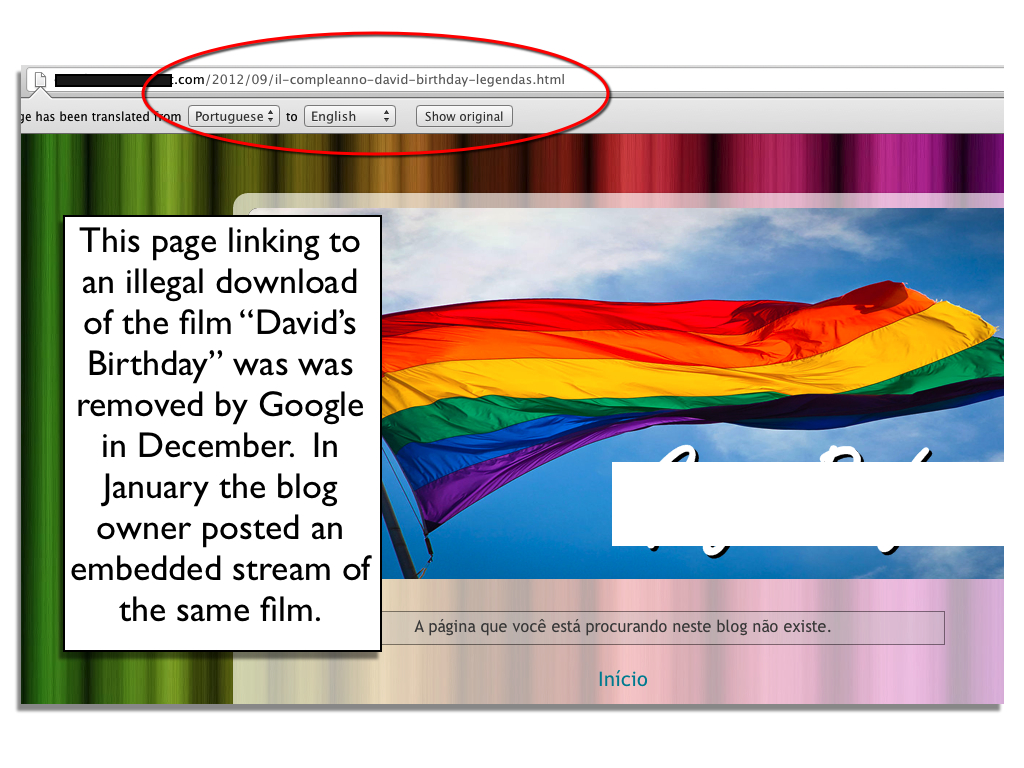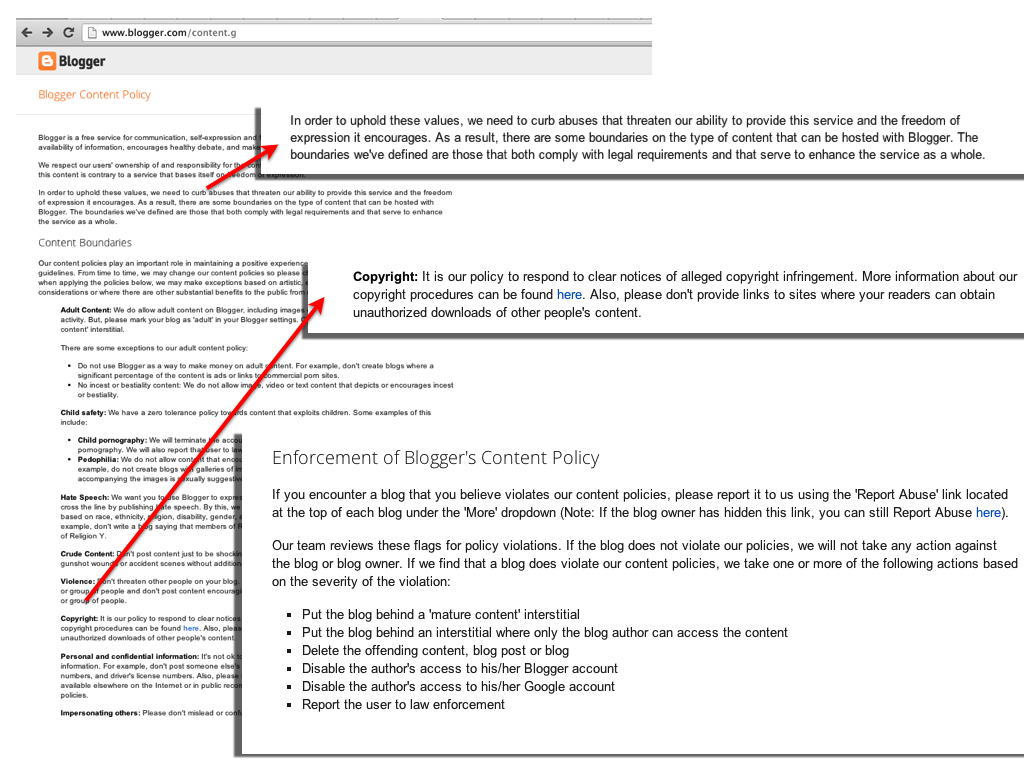“Oh what a tangled web we weave, when first we practice to deceive.”
— Sir Walter Scott
Surprise, surprise–Google announced today that its profits “surged” this quarter thanks to an increase in online advertising revenue. A company press release heralded the news:
We ended 2012 with a strong quarter,” said Larry Page, CEO of Google. “Revenues were up 36% year-on-year, and 8% quarter-on-quarter. And we hit $50 billion in revenues for the first time last year – not a bad achievement in just a decade and a half. In today’s multi-screen world we face tremendous opportunities as a technology company focused on user benefit. It’s an incredibly exciting time to be at Google.”
The company’s stock price jumped nearly 5% on the news. So, while Google executives and its shareholders are happy, one has to ask–how much of that “revenue” continues to come from not-so-ethical sources? I hate to sound like a broken record, but until Google gets its act together, I will continue to point out its duplicity with regard to online piracy and its ad revenue.
In the wake of this bullish news from Google I thought I’d point out a recent case study that demonstrates the myriad of ways Google supports (and profits from) piracy. This particular pirate movie website (shown below) is hosted on Google’s free “Blogger” platform. As with most other posts on the site, this one (published 1-18-13) features an embedded movie (a complete version of the indie film David’s Birthday) hosted via Google’s YouTube. The advertising above, and to the right of the embedded film, is served up by Google’s AdSense. Oh, and I found this site using Google’s search engine.
What makes this situation particularly troubling is that this blog had already been reported to Google (via their DMCA system) in December of 2012.
After receiving a takedown notice from Google the site’s owner posted a response, saying that he was considering closing it.
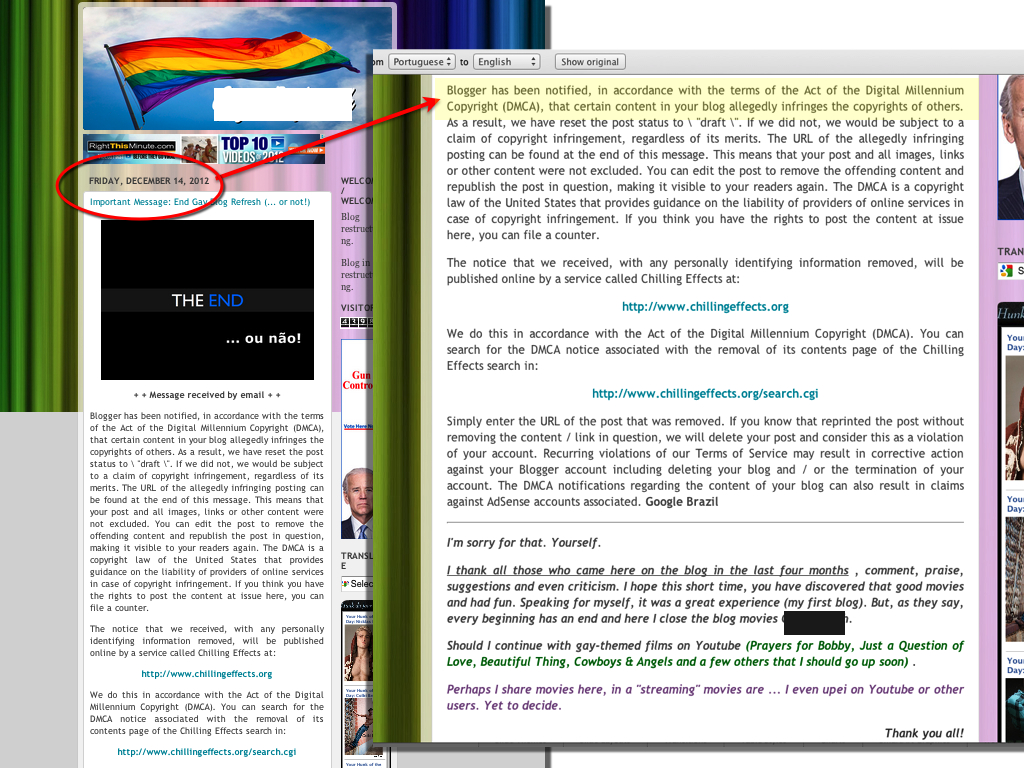
Blogger site owner received this notice from Google. Despite the warning and repeated violations of Blogger “Terms of Use” the site remains online.
He apparently had a change of heart, and within a few days, resumed posting (infringing) content on his site –including (ironically) the aforementioned “David’s Birthday” despite its having been cited in the December DMCA notice. This time, instead of posting infringing download links, he’s chosen to embed movies streamed via YouTube, each coupled with AdSense ads.
So, despite having been reported for multiple infringing links, the site remains up and running. In the meantime, Google appears to be in no hurry to take it offline. Don’t they have an obligation to remove the site? The language in Blogger’s Terms of Service outlining their “content policy” is conveniently vague. When a site violates its policy Google promises to take action “based on the severity of the violation” but it’s not really clear what criteria is used to measure the “severity” of a reported violation.
As for the AdSense, its “Terms of Service” seem pretty straightforward. Well, sort of…
Prohibited Uses. You shall not, and shall not authorize or encourage any third party to…
(v) display any Ad(s), Link(s), or Referral Button(s) on any Web page or any Web site that contains any pornographic, hate-related, violent, or illegal content;
6. Termination; Cancellation…Google may investigate any activity that may violate this Agreement. Google may at any time, in its sole discretion, terminate all or part of the Program, terminate this Agreement, or suspend or terminate the participation of any Property in all or part of the Program for any reason.
Since Google seems to have “investigated” this website in response to multiple DMCA notices, why is this AdSense account allowed to remain active? Does the aggrieved party have to file a DMCA with Blogger and with AdSense over and over again? It’s hard to imagine that Google’s copyright “team” isn’t aware these violations. Does Google not have the money to hire staff to follow-up on reported sites to enforce compliance? Is Google complying with U.S. law? What is meant by the caveat “its [Google’s] sole discretion?”
Does looking at the actual law clarify matters? According to Title 17 of U.S. Copyright Law, “conditions for eligibility” for “limitations on liability” include:
(i) Conditions for Eligibility.—
(1) Accommodation of technology. — The limitations on liability established by this section shall apply to a service provider only if the service provider —
(A) has adopted and reasonably implemented, and informs subscribers and account holders of the service provider’s system or network of, a policy that provides for the termination in appropriate circumstances of subscribers and account holders of the service provider’s system or network who are repeat infringers; (emphasis added)
How exactly does Google define a “repeat infringer?” They apparently don’t.
In a post published in September of 2011 on its own Public Policy Blog entitled “Making Copyright Work Better Online-A Progress Report,” Google gave itself a pat on the back, asserting that the company had made great strides in discouraging ad-sponsored piracy.
Improving our AdSense anti-piracy review. We have always prohibited the use of our AdSense program on web pages that provide infringing materials, and we routinely terminate publishers who violate our policies. In recent months, we have worked hard to improve our internal enforcement procedures. In April, we were among the first companies to certify compliance in the Interactive Advertising Bureau’s (IAB’s) Quality Assurance Certification program, through which participating advertising companies will take steps to enhance buyer control over the placement and context of advertising and build brand safety. In addition, we have invited rightsholder associations to identify their top priority sites for immediate review, and have acted on those tips when we have received them.
Sounds good right? On paper perhaps, but given the continued and pervasive presence of Google-sponsored advertising on pirate sites throughout the web, the reality is that Google’s public pledge appears to be carefully crafted lip-service designed to obfuscate the facts, rather than a representation of any meaningful progress.
Over the past two and a half years I’ve written extensively about Google’s ongoing link to ad piracy profits. Earlier this month USC’s Annenberg Innovation Lab released a report documenting the fact that search giant is at the head of the pack when it comes to monetizing (and subsidizing) online piracy via its ad networks. The relationship between Google and online piracy seems clear as day.
Yet, in the meantime–Google apparently plays fast and loose with the DMCA’s “safe harbor” provision. Given the fact they have teams of lawyers, one has to assume the company is careful to follow the letter of the law, but certainly not the spirit of it. Did the legislators who crafted the DMCA really intend for the law to enable entities like Google to hide behind the shield of safe harbor, under the guise of “innovation and free expression”–while simultaneously make (lots of) money monetizing stolen content? I doubt it.
Even the advertising industry recognizes that this is a area of concern. In May of last year The Association of National Advertisers (ANA) and the America Association of Advertising Agencies (4A’s) issued a statement entitled, “Best Practices to Address Online Piracy and Counterfeiting.” The statement included the following:
(i) All such intermediaries shall use commercially reasonable measures to prevent ads from being placed on such sites;
(ii) All such intermediaries shall have and implement commercially reasonable processes for removing or excluding such sites from their services, and for expeditiously terminating non-compliant ad placements, in response to reasonable and sufficiently detailed complaints or notices from rights holders and advertisers;
(iii) All such intermediaries shall refund or credit the advertiser for the fees, costs and/or value associated with non-compliant ad placements, or provide alternative remediation.
So, back to Google. Would a “reasonable measure” include removing AdSense ads from a site reported for piracy? What about reimbursing the advertiser who paid Google for these “non-compliant” ads and how does the fact Blogger is a Google-hosted site factor in? Should ad services do business with hosts that routinely serve pirated ads? In other words, should Google (AdSense) do business with itself (Blogger) if they are to honor these “best practices?”
My head is spinning. I guess that’s just the way the powers that be at Google like it.
This story originally posted on my other blog, voxindie.org.


